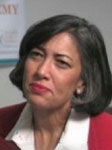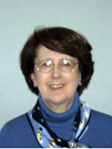 |
Vol VIII No. 2 Summer 2016 |
||||||||||||||||||||||||||||||||||||||||||||||||||||||||||||||||||||||||||
|
We have been blessed with five children, and our youngest graduated from high school last night. Of course, there are countless emotions rushed through my mind at such a milestone occasion. I thought about the first moments we laid eyes on our daughter and all the ways we’ve witnessed her growing and maturing over the years. I cherish those memories because they bring me such joy. I considered the various friends and family members who have entered her - some of whom have remained as fixtures and others of whom have just passed through. Their contributions to who she has become, whether significant or small, are all important. I have also given considerable thought to the teachers and counselors who have worked with our daughter during her educational career. She attended a public school district that serves a diverse population with a decidedly bimodal achievement record. This district is situated in a university town within a high poverty county, so the teaching and learning there is challenging in every way. But it’s because of this great challenge that the opportunity for a terrific education exists. If my first four children are any indication, this K-12 education that our school district provides greatly prepares its students for college or other career goals. My husband and I are banking on this fact for our youngest child since so much still lies before her. It has been said that successful people make decisions with the future in mind while unsuccessful people make decisions largely based on what feels good at the time. As mathematics teachers, we understand this dichotomy as we work with students every day. The Standards of Mathematical Practice highlight the need for students at every grade level to make wise choices with sound reasoning while learning the content standards of mathematics. These practice standards help largely to move our students into the arena of mathematical thinkers, able to make intelligent decisions as consumers and citizens. Our daughter was in the third grade when the Georgia Performance Standards, emphasizing student understanding and interpretation, were implemented. She was a ninth-grader when the Georgia Performance Common Core Standards were enacted, and now she is graduating under the Georgia Standards for Excellence. I firmly believe this shift in classroom emphasis from memorization and rote learning to grappling with the processes and understandings has made a significant contribution to her success in her math courses as well as in other academic areas. Her learning expectations have been shaped by these experiences in her mathematics classroom. Additionally, the opportunity to have genuine interactions with her teachers attributed to her growth in self-confidence and poise in the classroom. I am incredibly thankful for the impact these teachers have made on our child’s life, and, just in case no one has told you lately, many others are grateful for your service to their children as well. I recently learned that 92% of all students in the United States attend public schools. In this regard, we work with students from every background and walk of life, notwithstanding many circumstances beyond our abilities as classroom teachers to control. We might not be able to help all students achieve all the goals set for them, but we make significant, lifelong contributions to the young men and women they will become. It’s largely why many of us went into this profession in the first place. The end of a school year often leaves us emotionally and physically exhausted and in need of rejuvenation. In many ways, you just spent the last year draining yourself and your resources in order to pour them into the lives of your students. I hope you receive the appreciation of your students and their families for your selfless service, and I hope their growth over this year encourage you to have a renewed strength and vigor to begin again next year. Have a wonderful summer break! Kaycie
Something special is happening for professional learning this summer of 2016! The National Council of Teachers of Mathematics (NCTM) will be holding the following Summer Institutes in Atlanta:
For more information about NCTM’s Summer Institutes, refer to the flyer or to go the website found at Math Professional Development Institutes - National Council of Teachers of Mathematics. The Georgia Council of Teachers of Mathematics is excited to announce the winners of the Summer Institute scholarships who will their travel and registration expenses completely funded. Congratulations to:
NCTM's Interactive Institutes offer two and a half days of face-to-face, in-depth professional development provided by experts in mathematics education. Benefit from everything NCTM Institutes offer, including:
Please save these dates and make plans see us at NCTM Summer Institutes 2016.We are excited to have this event held in our own backyard. See you there!
Georgia General
Assembly Summary Report, 2016 Session In the early hours of the morning on March 25th, 2016 the Georgia General Assembly completed its 40-day legislative session and adjourned “Sine Die.” Upon adjournment, the Governor has 40 days to sign or veto bills (this year he will have until May 3rd). If the Governor does not sign or veto a bill, it will automatically become law. The Governor has the power of line-item veto over the budget bills. Below is a summary and comprehensive grid of the impactful legislation that we worked to identify, analyze, and track throughout the session.
SB 364 was authored by Senate Education Chairman Lindsey Tippins (R-Marietta). This bill seeks to reform the use of standardized tests in the evaluation of both students and teachers. A major focus of the bill is to pivot from summative assessments to formative evaluations in mathematics and reading. Of note, the bill requires science end of course tests to be administered annually in grades five and eight. The House version of the bill incorporates provisions of HB 1061 including the provision that would require that teachers be evaluated on a students’ achievement only if the student attends at least 90 percent of instructional days for the course in question. The Senate agreed to the House’s changes to this bill and it is now on the Governor’s desk awaiting action. SB 355 was authored by Senator William Ligon (R-Brunswick). This bill originally sought to enact numerous reforms to the use of standardized tests and Georgia’s teacher evaluation system. The bill was revised in the Senate to address standardized test opt-out procedures and seek to prevent teachers and administrators from being penalized when a student does not take a mandated test. This bill was approved by the House and is now on the Governor’s desk awaiting action. HB 801 was authored by House Speaker Pro Tempore Jan Jones (R-Milton). This bill, which has strong support from House leadership, seeks to allow the University System of Georgia to add GPA weights to certain STEM courses, which would exclusively impact a student’s HOPE GPA. The purpose of the bill is to prevent students from avoiding STEM courses because of the impact that the rigor could have on their HOPE scholarship eligibility. The House agreed to the Senate changes to this bill and it is now on the Governor’s desk awaiting action. HB 739 was authored by Rep. Kevin Tanner (R-Dawsonville). This bill, which was drafted in consultation with the Department of Education and numerous school districts, seeks to bring greater transparency to the instructional materials adoption process. The bill would make the statewide materials adoption process optional and require local districts to institute an instructional material review process that includes an easily accessible public notice and a parental component. This bill was approved by both the House and the Senate and is now on the Governor’s desk awaiting action. HB 1061 was authored by Rep. Tom Dickson (R-Cohutta). This bill seeks to reduce the impact of assessments on teacher evaluations. It also seeks to require that growth in student achievement as measured for teacher evaluation purposes only be used if the student attends at least 90 percent of instructional days for the course in question. The bill does not seek to change the number of state mandated assessments in any specific subject matter area. This bill was considered by the House Education Committee but did not receive a vote. It did not achieve final passage this year. Advocacy Updates While no legislation specific to mathematics was enacted during the 2016 legislative session, there are several issues that will be on the ballot in November that will affect education and teachers. The following links contain information of interest to teachers related to public education. http://pv.gae2.org/ – Click on the Issues and Action tab. http://www.pageinc.org/ - Scroll down to PAGE News in the center of the page or click on Get Legislative News on the left. http://gsba.com/advocacy-communications/newsroom/daily-news-clips/ - The Daily News Clips provide links to articles related to education.
GCTM will continue to promote the importance of a quality mathematics education in Georgia with legislators. Several efforts are in the planning stages: schedule meetings with legislators; schedule school visits for interested legislators; provide an opportunity for legislators to meet some students who are excelling in mathematics during the session; and schedule the 4th annual Math Day at the Capitol during the 2017 legislative session. In addition, legislators and State Board of Education members will be sent a special invitation to attend the Georgia Mathematics Conference at Rock Eagle. Please reach out to your legislator and invite them to visit your classroom to see students engaged in mathematics in meaningful ways that incorporate the mathematical practices, the Standards for Mathematical Practices. You can find contact information for your legislators at the following link. http://openstates.org/find_your_legislator/ A full list of state Senators and Representatives can be found at the following links. http://www.senate.ga.gov/senators/en-US/SenateMembersList.aspx http://www.house.ga.gov/Representatives/en-US/HouseMembersList.aspx
Board of Education update: The Georgia Board of Education took up the final adoption of the proposed science and social studies Standards of Excellence in their March 31st meeting. Five individuals testified in favor of the revised science standards including retired teachers, representatives from the Captain Planet Foundation, the University of Georgia, and other stakeholder groups. After testimony was heard, the Board moved to adopt the draft science standards and they were approved unanimously. As a result of the substantial outreach that the Board of Education and State School Superintendent Richard Woods received on the recent last minute changes to the social studies Standards of Excellence, the Board voted to postpone the vote on the social studies standards to the May 5th meeting so that the social studies standards advisory group can reconvene on April 21st and evaluate the changes and the feedback they received. US History and Government in particular will be reviewed closely. Also of note, the House and Senate Education Chairmen Brooks Coleman (R-Duluth) and Lindsey Tippins (R-Marietta) were in attendance and provided an overview of the actions of the General Assembly during the 2016 legislative session. Chairman Tippins reviewed SB 364 after which board member Barbra Hampton encouraged him and his committee to refrain from making additional changes that would impact teachers in the next few years. Chairman Tippins responded by saying that he intended to “measure twice and cut once on this issue.” Chairman Coleman gave an update on initiatives that the General Assembly plans to address in the coming years – he noted that Georgia is in the “dark ages” in terms of technology in the classroom and that legislation is in the works to encourage the use of advanced technology. He told the group that this would be a priority next year during the legislative session. Additionally, Chairman Coleman noted that he and his committee plan to hold seven to eight hearings around the state in the coming year (three in the spring and four in the fall) to ask teachers: 1) How do you teach reading? 2) How do you teach mathematics? 3) What is still wrong with testing? 4) How do we successfully pay for high performing teachers based on indicators other/in addition to testing? 5) How do we make it happen? In the conclusion of his remarks, Chairman Coleman mentioned that he plans to advocate for a tax credit in the coming years totaling $20-25 million per year for grants to allow teachers experiment with new and innovative ways to teach reading and mathematics.
Statistics content occupies a prominent position in curriculum expectations. Recommendations for statistics teaching include actively engaging students with important statistical ideas and appropriately integrating technology into activities (Garfield & Ben-Zvi, 2008). Teachers can benefit from statistical learning opportunities that align with these recommendations (Chance & Rossman, 2006). In this article, we share experiences from our design and implementation of an activity to develop conceptual understanding of the coefficient of determination, R2. We use it to provide prospective teachers with a learning opportunity aligned with statistics teaching recommendations and encourage its use with secondary students. The activity offers a unique combination of opportunities to use technology for doing and learning statistics, to draw on calculus ideas, and to make surprising connections to secondary school mathematics content.
Coefficient of Determination Activity The coefficient of determination activity is about moving beyond knowing the coefficient of determination as a number for R2 to reasoning about it as a concept in the context of least squares regression to model relationships between variables. The activity was designed to develop conceptual understanding of R2, model relationships between variables and assess goodness of fit, make connections to common mathematics content (and among representations), and promote technology as a tool for learning and teaching. Technology that allows for dynamic interaction with data, such as the freely available Core Math Tools from the National Council of Teachers of Mathematics, is best for this activity. Dr. Zbiek is a former Pennsylvania mathematics and computer science teacher. She joined the Penn State faculty in 2002 after a decade of teaching mathematics and mathematics education at the University of Iowa. Her scholarly interests focus on teachers' and students' mathematical reasoning and representations in technology-intensive environments at the secondary and college levels. Dr. Peters earned a Ph.D in Curriculum and Instruction from Penn State in 2009. She currently teaches Middle and secondary mathematics education as well as graduate research topics in mathematics education at the University of Louisville. Her research interests include statistics education, teacher knowledge and mathematics, and mathematics teacher education.
Abstract The purpose of this paper is to describe the mathematics that emanate from the construction of an origami box. We first construct a simple origami box from a rectangular sheet and then discuss some of the mathematical questions that arise in the context of geometry and algebra. The activity can be used as a context for illustrating how algebra and geometry, like other branches of mathematics, are interrelated. A New Twist on an Old Box
In this paper folding activity, we learn to fold an origami box, and discuss the mathematics embedded in the box. No experience in origami is needed to construct this box. However, it is important to make the creases sharp and accurate. Figure 1 illustrates the two types of creases that are formed when a piece of paper is folded. The constructed box will be a prism with a rectangular base.
Arsalan Wares teaches mathematics education courses at Valdosta State University in Valdosta, GA. He is interested in the role of paper folding in the teaching of mathematics.
HONORS & AWARDS Do you know a teacher of mathematics that goes above and beyond their job description to assure their students are successful? Now is the perfect time to stop and recommend this person for a well-deserved GCTM honor/award. The rules for making a nomination have been changed to make it easier than ever to submit the name of a special educator that truly makes a difference in the lives of their students for a GCTM honor/award. No longer does the person making the nomination need to be a member of GCTM, except in the case of the Gladys M. Thomason Award. This means any teacher, coach, administrator, parent, or student is now eligible to submit a great candidate for any of the other appropriate honors/awards.
Gladys M. Thomason Award for Distinguished Service :
Nomination form
Dwight Love Award :
Nomination form
John Neff Award :
Nomination form
Awards for Excellence in the Teaching of Mathematics :
Nomination form
Teacher of Promise Award :
Nomination form GRANTS Do you have great ideas for activities and lessons for your students, but just do not have the materials to implement them in your classroom because there is no money available through your school, system, or PTA? GCTM can help! GCTM offers mini-grants in any amount up to $300 and special project grants to support larger projects that focus staff development, conferences, curriculum development, task forces, research projects, and other initiatives. For more information, please visit the Grants Page to send us your application. Be sure to make it simple for those voting on your grant to understand the purpose of your lesson, why you need the items you are requesting, and why you need help with funding. GCTM wants to help YOU!
Before you know it, it will be time for another Georgia Mathematics Conference at Rock Eagle. Save the date! The 57th GMC will be held on October 19th through 21st, 2016. The theme will focus on “Principles to Actions,” as recently addressed by NCTM. Here is a preview of some of our special and keynote speakers we have in store for you. Keynote speakers:
Are you interested in being a speaker for one of the sessions at the conference? Please fill out a speaker proposal form found here. See you in October!
You can help GCTM’s mission to promote a high-quality mathematics education for Georgia’s students by serving in this important position – send your letter today!
What can Reflections do for you? Over the next school year, we will strive to bring you content that is relevant to your life inside the classroom and across the state. Below you will find topics that we are considering to highlight for the 2016 – 2017 school year. Which of these are most important to you? Let us know by taking a quick eight-question poll. Thank you for your help!
Middle School Math Tournament The GCTM Middle School Math Tournament was held at Thomson Middle School in Centerville, Georgia on April 23, 2016. Middle schools from across the state were invited to register up to eight students to compete. The tournament consisted of a 30 question multiple-choice test with a 45-minute time limit; 10 individual ciphering problems, each problem with a two-minute time limit; 3 rounds of four pair ciphering problems (in which students from a school formed teams of two), each round with a four-minute time limit; and a four-person team “power question,” in which the team solves a complex problem with a 10-minute time limit. The tournament is designed to challenge middle school students and to reinforce classroom skills. However, we also make sure the students have fun! At the conclusion of the tournament, students participate in a fun “Frightnin’ Lightnin’” Round, where students must be quick on the draw to answer math problems posed orally. The winners of this round get candy! Trophies went to the top five teams and the top ten individuals. For the first time in the history of the tournament, there was a three-way tie for first place between Charlie Furniss and Holden Watson of Fulton Science Academy, and Stephen Yin of Oconee County Middle School. The top teams are below. TOP TEAMS:
Eighty students from fourteen schools participated. Sponsors that are members of GCTM only had to pay a $10 registration fee or submit five multiple-choice questions for possible inclusion in a future tournament. The next GCTM middle school tournament is scheduled for April 22, 2017. State Math Tournament The 40th annual GCTM State Math Tournament was held at Middle Georgia State University in Macon, Georgia on April 30, 2016. Schools are invited to the state tournament based on their performance on previous Georgia tournaments throughout the 2015-2016 school year. Thirty-five invited schools attended this year’s state tournament. Four students are selected by their school sponsor to represent each school (one school brought a team of three). Eighteen individuals were also invited to try-out for the state-wide Georgia ARML team, making a total of 157 participants. The tournament consisted of a very challenging written test of 45 multiple-choice questions and 5 free-response questions with a 90-minute time limit; 10 individual ciphering problems, each problem with a two-minute time limit; and a team round. The team round consisted of 12 problems for each team to solve while working together within eighteen minutes. Each participant and their school sponsor was given a 2016 State Tournament T-shirt. The top five teams and the top fifteen individuals are listed below. TOP TEAMS:
TOP INDIVIDUALS:
State Tournament registration is free, but schools must be invited. The next State Mathematics Tournament is scheduled for April 29, 2017.
We are excited to feature this issue’s student artwork created by Cara Chen and Juliet Cohn from Mountain View Elementary in the Cobb County School District. The artwork was submitted by Maureen Armstrong, the Art Specialist, who writes:
Thank you for beautiful mathematical artwork, Cara and Juliet! We love them! Teachers, do you have student submissions that you would like to share? Please consider emailing them to me at gammillgctm@gmail.com along with the student release forms from your district. They just might turn into published pieces of art!
The Georgia Department of Education (GaDOE) is accepting proposals for grants awarded by the Georgia Mathematics and Science Partnership (MSP) Program. All proposals must be received electronically by abuice@doe.k12.ga.us at the GaDOE by 5:00 p.m. on Friday, July 1, 2016. Forms requiring signatures must be mailed and post-marked by July 1, 2016. The RFP and corresponding proposal framework document for the MSP Program grants are posted on the MSP Program page, go to www.gadoe.org and type “MSP” in the search engine.
Any Georgia high-need school system or consortium may submit a proposal for funding consideration in partnership with an institution of higher education. In order to qualify as high-need, a school system must demonstrate that at least 40% of its students qualify for the free and reduced meal plan according to the most recent data collected by the GaDOE. Projects must include teachers from Priority (Comprehensive), Focus (Targeted), or other Title I schools. Georgia MSP Program funding may be used to support the following endeavors:
For additional information, please contact:
Excerpted from NCTM Affiliates News & NCTM e-blast Founded in 1920, the National Council of Teachers of Mathematics (NCTM) is the world’s largest mathematics education organization, with 80,000 members and more than 230 Affiliates throughout the United States and Canada. Interested in Membership? Learn more about exclusive member benefits and discounts and join today at NCTM.org, Membership. I. NCTM Annual Conferences – NCTM will be moving its Annual Conferences from April of each year to September, beginning in 2020.
II. Engage in Deep Learning with NCTM Interactive Institutes NCTM's Interactive Institutes offer two and a half days of face-to-face, in-depth professional development provided by experts in mathematics education. Benefit from everything NCTM Institutes offer, including:
Upcoming 2016 Institutes - Atlanta – Don’t miss out!
III. Educators should be aware that the U.S. Congress is re-writing the Elementary and Secondary School Act (ESSA) and has renamed it as the Every Student Succeeds Act (ESSA). Among the proposals is this:
While this sounds like a relatively good idea, we should keep in mind that with the intense focus on accountability and test scores these days, very often “what is tested” is what gets the most focus during teaching and instruction. Consider what might happen if a LEA decides that students take the national assessment of the SAT in lieu of a state high school assessment. What most high school teachers already know is that the SAT has very little Geometry content in its questions. Already this is leading to consideration by districts to eliminate or minimize Geometry course instruction. Most of us find this appalling! Please contact your U.S. legislator(s) to make them aware of this dangerous side effect! Surely this is a totally unintended consequence created by well-intentioned non-educators. We need to help them understand the importance of a complete high school mathematics learning experience and the role of accountability in instructional practices. IV. NCTM Major Initiatives & New Resources
Check out the newly revised NCTM website to learn more about these initiatives! NCTM Vision: The National Council of Teachers of Mathematics is the global leader and foremost authority in mathematics education, ensuring that all students have access to the highest quality mathematics teaching and learning. We envision a world where everyone is enthused about mathematics, sees the value and beauty of mathematics, and is empowered by the opportunities mathematics affords. (Approved by the NCTM Board of Directors, October 20, 2012)
The Georgia Council of Teachers of Mathematics as an affiliate of NCTM offers us invaluable leadership training, support, superb national, regional, and annual conferences, and a professional organization of superior quality, bar none. At the recent Annual Meeting in San Francisco, Matt Larson was inaugurated as NCTM’s new president. In a recent speech, he addressed an issue we face at GCTM as well – declining membership. President Larson’s words are fitting for GCTM as well, and I share an excerpt below.
Matt Larson’s statement is poignant to the trends we are seeing at GCTM. I cannot imagine my career without GCTM and NCTM. But my active teaching has ended and the world of teaching has changed dramatically, as Matt notes in his remarks. We thirsted for ideas, quenched that thirst at conferences and returned the lessons learned to our classrooms. Today, we quench our thirst by dropping in to www.givemeideshowtoteachGCF.com or saying GCF to someone called SIRI. And, BOOM, instant gratification. What can GCTM do to regain and retain your membership? Let us hear your opinions and suggestions. Membership in GCTM continues to bring many opportunities for professional growth. It offers real time connections to real mathematics professionals who can bring enrichment to our classrooms and students. $20 never bought so much. Make GCTM membership a priority. Today, encourage one colleague to join or renew and model that behavior yourself. Please! Have a wonderful summer!
|
Table of Contents President's Message - by Kaycie Maddox, GCTM President NCTM Summer Institutes in Atlanta! - by Kaycie Maddox, GCTM President Legislative Updates - by Denise Huddlestun, VP for Advocacy Coefficient of Determination: It’s Just Middle School Math? - by Susan A. Peters, University of Louisville and Rose Mary Zbiek, The Pennsylvania State University A New Twist on an Old Box - by Arsalan Wares Award Announcements! - by Peggy Poole, University VP for Honors and Awards GMC Update - by Wendy Sanchez, GMC Program Chair GMC Conference Board Position - by Kaycie Maddox, GCTM President Reader's Poll - by Becky Gammill, Ed.D., Editor Math Tournament News - by Chuck Garner, VP Competitions Student Artwork Section - by Becky Gammill, Ed.D., Editor NCTM News! - by Dottie Whitlow, NCTM Representative GCTM Membership Report - by Susan Craig, Membership Director
|
||||||||||||||||||||||||||||||||||||||||||||||||||||||||||||||||||||||||||
|
Georgia Council of Teachers of Mathematics | PO Box 5865, Augusta, GA 30916 | 1-855-ASK-GCTM |
|||||||||||||||||||||||||||||||||||||||||||||||||||||||||||||||||||||||||||

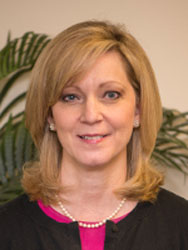
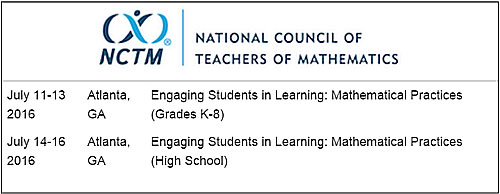
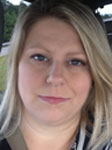
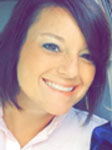
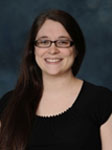

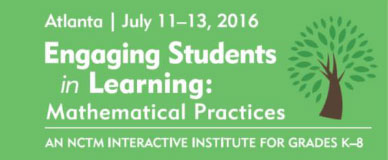
 The
following summary report was provided by Tyler J. Kaplan and Ryan
Loke, consultants hired by GCTM to provide guidance related to
advocacy. The report included legislation dealing with educational
issues as well as Board of Education updates.
The
following summary report was provided by Tyler J. Kaplan and Ryan
Loke, consultants hired by GCTM to provide guidance related to
advocacy. The report included legislation dealing with educational
issues as well as Board of Education updates. Legislative
update:
Legislative
update: Plans for Next Year
Plans for Next Year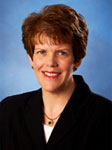
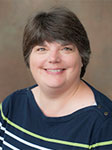
 The
coefficient of determination activity helps teachers and students
develop multiple aspects of bivariate data analysis—analysis of data
involving two variables. This area of statistics is prominent in
curriculum recommendations, including Focus in High School
Mathematics (NCTM, 2009), Principles and Standards for School
Mathematics (NCTM, 2000), and the Common Core State Standards
in Mathematics (CCSSM [CCSSI, 2010]). Common Core State
Standards in Mathematics additionally emphasizes modeling and
strategic use of appropriate tools. Recommendations for mathematics
teacher preparation (AMTE, 2006; CBMS, 2012; Franklin et al., 2015)
parallel these curriculum themes. We designed the coefficient of
determination activity to target these recommendations and to
encourage flexible thinking about statistics content.
The
coefficient of determination activity helps teachers and students
develop multiple aspects of bivariate data analysis—analysis of data
involving two variables. This area of statistics is prominent in
curriculum recommendations, including Focus in High School
Mathematics (NCTM, 2009), Principles and Standards for School
Mathematics (NCTM, 2000), and the Common Core State Standards
in Mathematics (CCSSM [CCSSI, 2010]). Common Core State
Standards in Mathematics additionally emphasizes modeling and
strategic use of appropriate tools. Recommendations for mathematics
teacher preparation (AMTE, 2006; CBMS, 2012; Franklin et al., 2015)
parallel these curriculum themes. We designed the coefficient of
determination activity to target these recommendations and to
encourage flexible thinking about statistics content.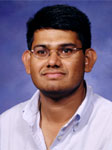
 The Common Core State Standards put a tremendous amount of emphasis on conceptual understanding (CCSSI, 2010). Origami provides a powerful context for conceptual understanding of mathematical ideas. Among other things, origami gives our students ready-made manipulatives that can be used to visualize abstract mathematical ideas in a concrete manner (Haga, 2006; Hull, 2006). For instance, when one creates a box from a rectangular sheet of paper, the box becomes the object that can be manipulated and analyzed, and abstract concepts like length, width, height, volume, and surface area become something that one can “touch.” When students have objects that they have created, students communicate better with one another and with their teacher. Moreover, paper folding in general is essentially mathematics in action. When one is folding paper, she or he is playing with mathematical concepts like perpendicular bisection, angle bisection, and properties of right isosceles triangle, just to name a few of the mathematical concepts that are inextricably connected to paper folding (Tubis & Mills, 2006). In fact, it actually becomes fairly difficult to separate paper folding from mathematics. Due to the link between origami and art, origami can additionally be used to inspire artistic-minded students to think mathematically. Lastly, origami creates a powerful context for the application of Howard Gardner’s theory of Multiple Intelligences (Gardner, 2006; Wares, 2013). Gardner’s theory of Multiple Intelligences incorporates several other dimensions of intelligences besides
linguistic and logical-mathematical intelligence. Gardner identified the following nine intelligences:
linguistic, logical-mathematical, bodily-kinesthetic, spatial, musical, interpersonal, intrapersonal, naturalist, and existential intelligence
(Gardner, 2006).
The Common Core State Standards put a tremendous amount of emphasis on conceptual understanding (CCSSI, 2010). Origami provides a powerful context for conceptual understanding of mathematical ideas. Among other things, origami gives our students ready-made manipulatives that can be used to visualize abstract mathematical ideas in a concrete manner (Haga, 2006; Hull, 2006). For instance, when one creates a box from a rectangular sheet of paper, the box becomes the object that can be manipulated and analyzed, and abstract concepts like length, width, height, volume, and surface area become something that one can “touch.” When students have objects that they have created, students communicate better with one another and with their teacher. Moreover, paper folding in general is essentially mathematics in action. When one is folding paper, she or he is playing with mathematical concepts like perpendicular bisection, angle bisection, and properties of right isosceles triangle, just to name a few of the mathematical concepts that are inextricably connected to paper folding (Tubis & Mills, 2006). In fact, it actually becomes fairly difficult to separate paper folding from mathematics. Due to the link between origami and art, origami can additionally be used to inspire artistic-minded students to think mathematically. Lastly, origami creates a powerful context for the application of Howard Gardner’s theory of Multiple Intelligences (Gardner, 2006; Wares, 2013). Gardner’s theory of Multiple Intelligences incorporates several other dimensions of intelligences besides
linguistic and logical-mathematical intelligence. Gardner identified the following nine intelligences:
linguistic, logical-mathematical, bodily-kinesthetic, spatial, musical, interpersonal, intrapersonal, naturalist, and existential intelligence
(Gardner, 2006).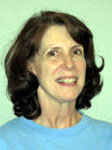
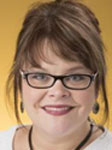
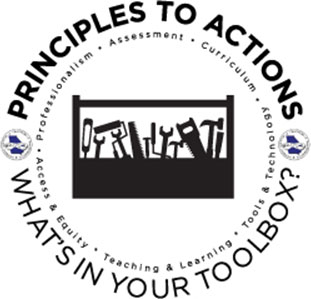 Featured
speakers:
Featured
speakers: The
Georgia Mathematics Conference is seeking a highly-motivated
teacher/educator to serve as Conference Coordinator! Mentoring
will be provided fall 2016, with position responsibility beginning
November 1, 2016. For more information, please send a letter of
interest to
The
Georgia Mathematics Conference is seeking a highly-motivated
teacher/educator to serve as Conference Coordinator! Mentoring
will be provided fall 2016, with position responsibility beginning
November 1, 2016. For more information, please send a letter of
interest to 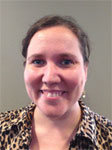


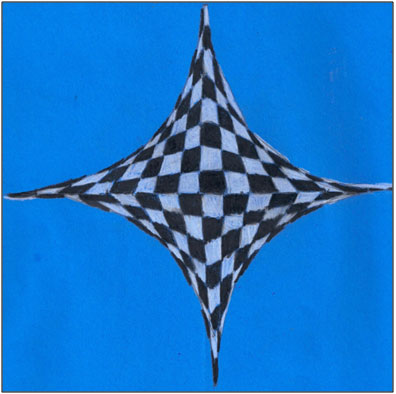
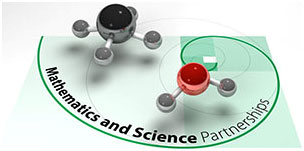 The Georgia MSP Program
seeks to improve the content knowledge and ability to analyze
student thinking of cohort groups of mathematics and/or science
teachers of grades K-5, 6-8, and/or 9-12 in order to increase the
achievement of their students. These improvement efforts are
designed, implemented, and evaluated by strong partnerships between
college and university faculty, high-need school systems, RESAs, and
other qualifying partners. (A program synopsis follows this memo.)
The Georgia MSP Program
seeks to improve the content knowledge and ability to analyze
student thinking of cohort groups of mathematics and/or science
teachers of grades K-5, 6-8, and/or 9-12 in order to increase the
achievement of their students. These improvement efforts are
designed, implemented, and evaluated by strong partnerships between
college and university faculty, high-need school systems, RESAs, and
other qualifying partners. (A program synopsis follows this memo.)